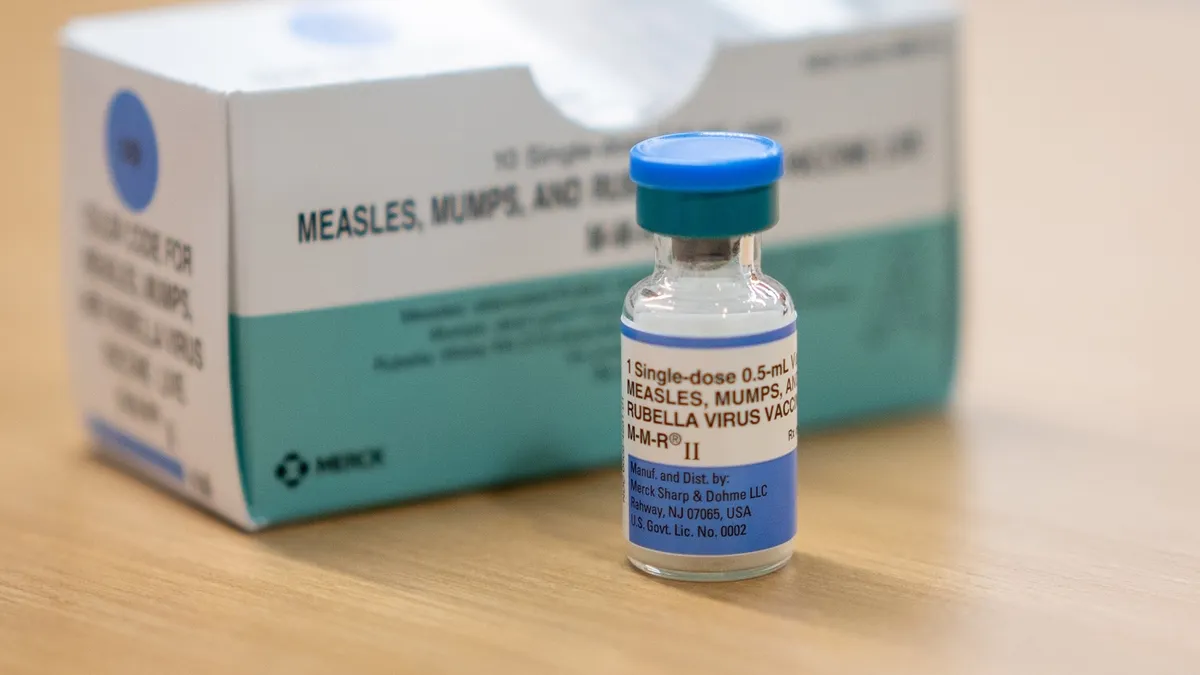
As measles cases continue to surge across the United States, many Americans are questioning whether they require a measles vaccine booster for enhanced protection. Recently, an outbreak in western Texas has escalated, reaching a staggering 279 cases, predominantly among individuals who are unvaccinated or whose vaccination status remains uncertain. Similarly, an outbreak in neighboring New Mexico has seen its numbers rise, now totaling 38 cases as of Wednesday.
The Centers for Disease Control and Prevention (CDC) currently advises that individuals receive two doses of the measles vaccine. The first dose should be administered between 12 to 15 months of age, followed by a second dose between the ages of 4 and 6 years old. According to the CDC, a single dose of the vaccine is 93% effective, while two doses increase the efficacy to 97%.
Dr. Paul Offit, director of the Vaccine Education Center at Children's Hospital of Philadelphia, emphasizes that most vaccinated adults do not require an additional vaccine dose. He clarifies that what many refer to as a booster shot should actually be considered a dose, as the measles vaccine was originally a single-dose vaccine before the recommendation for a second dose emerged in the late 1980s.
Dr. Offit notes that during the late '80s, significant outbreaks of measles occurred, but these primarily affected individuals who had never received the vaccine. “It wasn’t that the immunity faded or that the vaccine wasn’t effective; it was that people simply weren’t vaccinated,” he explains. The second dose was introduced as a means to provide children with another opportunity to receive their first dose.
For those born before 1957, Dr. Offit states they are generally considered to have life-long immunity to measles. Before the introduction of the MMR vaccine, nearly all children were infected with measles, mumps, and rubella. The CDC confirms that those with a verified laboratory diagnosis of measles are protected against the virus.
The first measles vaccine was licensed in the U.S. in 1963, followed by an improved version in 1968. Dr. Gregory Poland, a vaccinologist and co-director of The Atria Research Institute, points out that a very small percentage of Americans, less than 5%, may have received an inactivated measles vaccine between 1963 and 1967, which may not have provided adequate protection. These individuals may be eligible for re-vaccination with one or two doses, according to the CDC.
Dr. Poland explains that the initial inactivated measles vaccine had significant drawbacks. It not only failed to produce protective immunity but also led to atypical measles in those who were infected. During that time, there was also a live attenuated measles vaccine available, which caused various side effects. To mitigate these side effects, physicians often administered a shot of immunoglobulin alongside the vaccine, which unfortunately diminished the effectiveness of the vaccine.
For individuals who were vaccinated with the modern single-dose vaccine or the MMR vaccine, Dr. Offit asserts that an additional dose is typically unnecessary. In 1989, the Advisory Committee on Immunization Practices, alongside the American Academy of Pediatrics and the American Academy of Family Physicians, recommended a second dose of the MMR vaccine for children. Both Dr. Offit and Dr. Poland affirm that anyone who has received two doses of the MMR vaccine does not need an additional shot.
If you are uncertain about your immunity status against measles, the best first step is to locate your vaccination records. If documentation is unavailable, receiving another dose of the MMR vaccine poses no harm, according to the CDC. Additionally, healthcare providers can conduct blood tests to assess immunity, although this is generally not recommended.
In light of the escalating measles outbreak, the CDC issued an alert on March 7, advising parents in outbreak areas to consider administering an early third dose of the MMR vaccine to their children. Texas health officials have echoed this recommendation, suggesting early vaccination for infants residing in high-risk areas. This would involve a total of three doses: an early dose between 6 and 11 months, followed by the standard two doses.
Dr. Poland stresses that this early dose is specifically for infants in high-risk zones or those visiting such areas, and is not recommended for the majority of children. The rationale behind delaying vaccination until after 12 months is that maternal antibodies, passed through the placenta, can interfere with the vaccine's effectiveness if administered too early. These antibodies typically last for about 12 months, and vaccinating before this period may not yield long-lasting immunity.